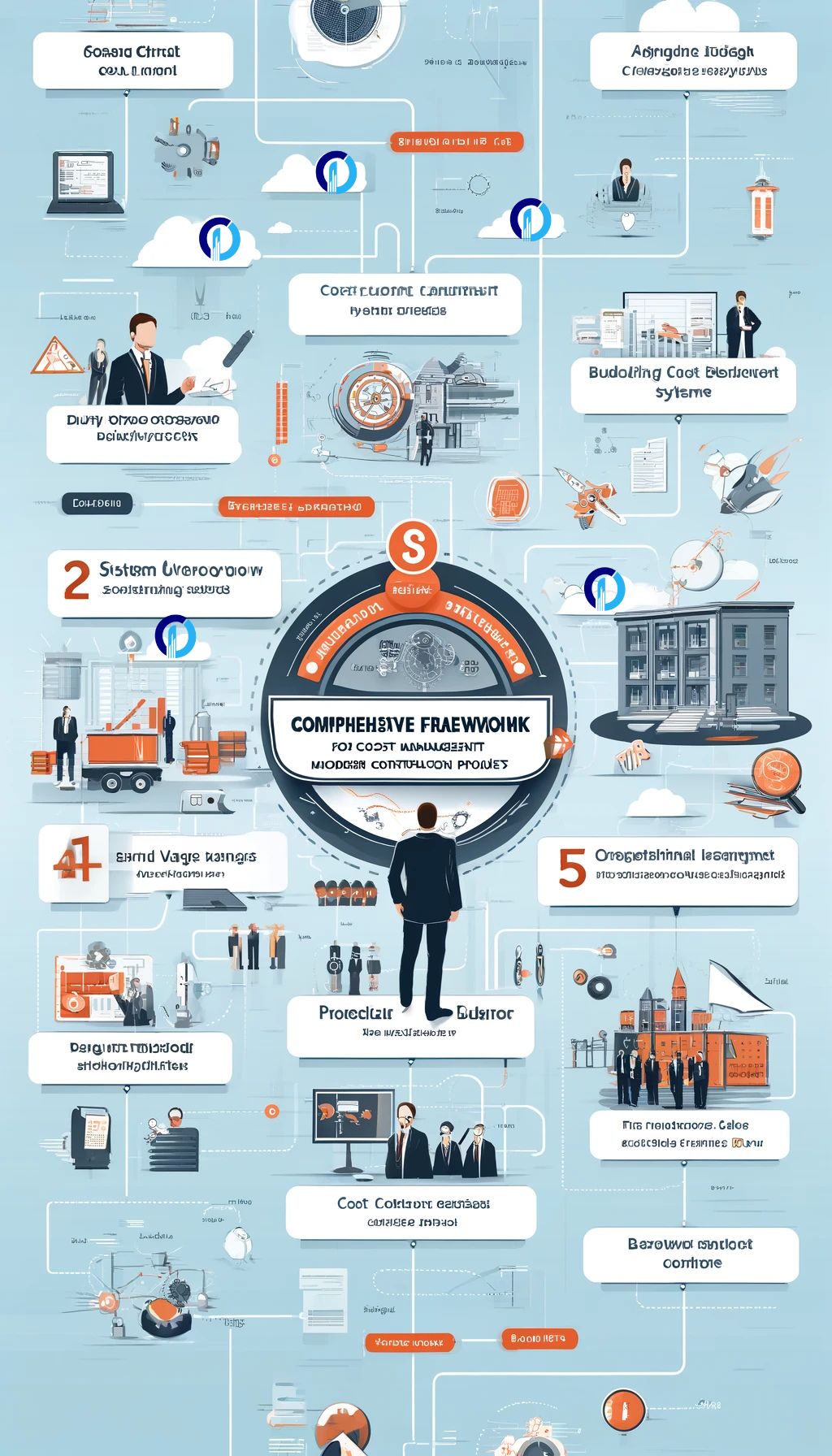Comprehensive Framework for Advanced Cost Management in Modern Construction Projects
Introduction to Advanced Cost Management
In today’s rapidly evolving construction industry, managing costs effectively is paramount for the success and sustainability of any project. As such, a sophisticated cost control system is essential. This document outlines a comprehensive approach to cost management, designed to align with international standards and adapt to the intricate dynamics of modern construction projects. By integrating advanced technological tools and strategic management practices, this system aims to enhance accuracy, efficiency, and overall project performance.

Advanced Cost Management Infogram
System Overview
The proposed cost control system is a sophisticated integration of PC-based software with the overarching company accounting system, facilitating real-time financial oversight and strategic project management. This system serves dual objectives:
1. Integrated Project Control: Achieves a seamless integration of schedule and resource management, ensuring project deliverables are met both on time and within budget.
2. Performance and Forecasting: Provides management with timely, accurate cost statuses and forecasts at completion to pinpoint areas needing attention and enable prompt corrective measures.
Cost Control Philosophy
Our cost control philosophy is built on the foundation of transparency, accountability, and continuous improvement. Key principles include:
– Earned Value Management (EVM): Utilizes earned value concepts for precise cost control, rooted in the original contract price.
– Unified Scheduling and Budgeting: Employs a common scheduling and budget breakdown structure for coherent project tracking.
– Detailed Initial Budgeting: Develop an exhaustive control budget in the early stages to set a clear financial roadmap.
– Ongoing Monitoring and Adjustment: Ensures continuous tracking of costs against the budget throughout the project lifecycle, with adjustments as needed.
– Enforcement of Procedures: Adheres strictly to established cost control procedures to maintain discipline and consistency.
– Collective Responsibility: Engages the entire project team in cost management to foster a culture of financial diligence.
Organizational Structure and Responsibilities
The Project Cost Team, led by the Project Control Manager, is pivotal in executing the cost control strategy. Comprising experienced specialists from various departments, the team’s responsibilities span all project phases:
1. General Responsibilities:
– Formulate and update the project cost control procedure.
– Facilitate robust communication across project teams to ensure widespread understanding of cost implications.
– Continuously assess the project’s financial health and advise on deviations and corrective strategies.
– Participate in key project meetings, ensuring cost perspectives are well-represented.
2. Engineering and Procurement Phase:
– Engage in subcontractor selection and major purchases to ensure cost-effectiveness and compliance with project budgets.
– Monitor and validate expenditures across various categories to safeguard budget alignment.
Cost Coding and Budgeting System
A robust cost coding system is essential for effective financial tracking and management:
– Project Cost Coding: Establishes a detailed coding system that aligns with the standard code of accounts, adapted as necessary for project-specific requirements.
– Control Budget Preparation: Involves the creation of a meticulous control budget post-project commencement, continuously updated to reflect real-time financial data and project adjustments.

Procedural Elements of Cost Control
1. Project Control Estimates:
– Develop an initial control budget that reflects the proposal estimate, adjusting for any changes during contract finalization.
– Ensure all cost elements are organized according to the project cost coding system for streamlined management.
2. Tracking and Recording:
– Formalize the control estimate with approval from the Project Manager, using it as a baseline for tracking actual expenditures against budget forecasts.
3. Expenditure Control:
– Implement stringent controls on expenditures, requiring approvals for any costs exceeding budget forecasts, ensuring all expenses are justified and validated.
Conclusion
The implementation of this advanced cost control system in construction projects not only adheres to international standards but also sets a new benchmark for financial management within the industry. By embracing a holistic and integrated approach, construction firms can achieve higher levels of financial transparency, control, and efficiency, driving successful project outcomes in an increasingly competitive market.












